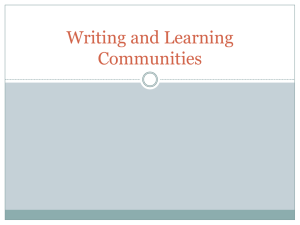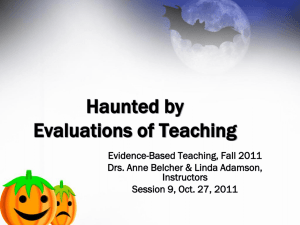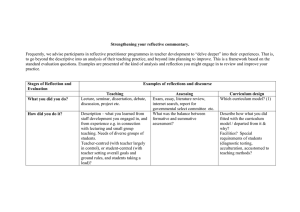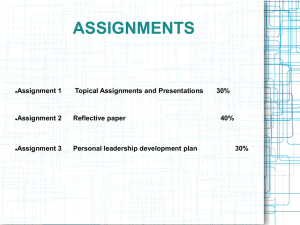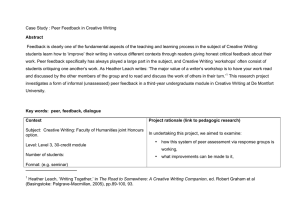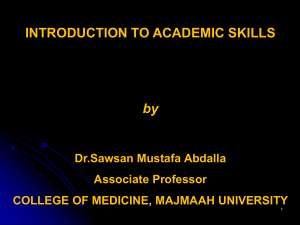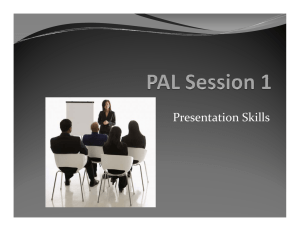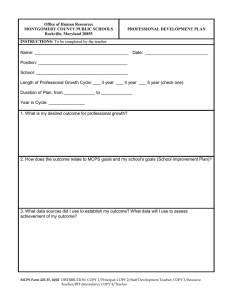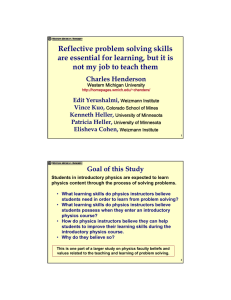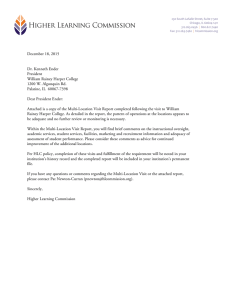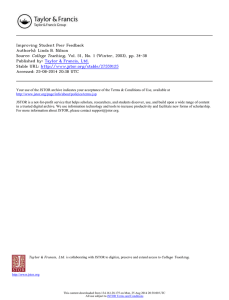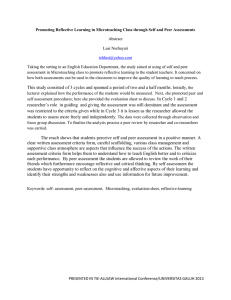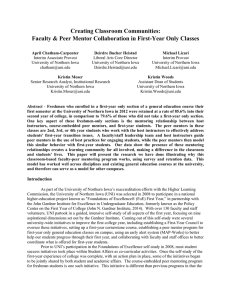An analysis of peer review responses in an online graduate... Abstract The effectiveness of a peer review process for online graduate...
advertisement
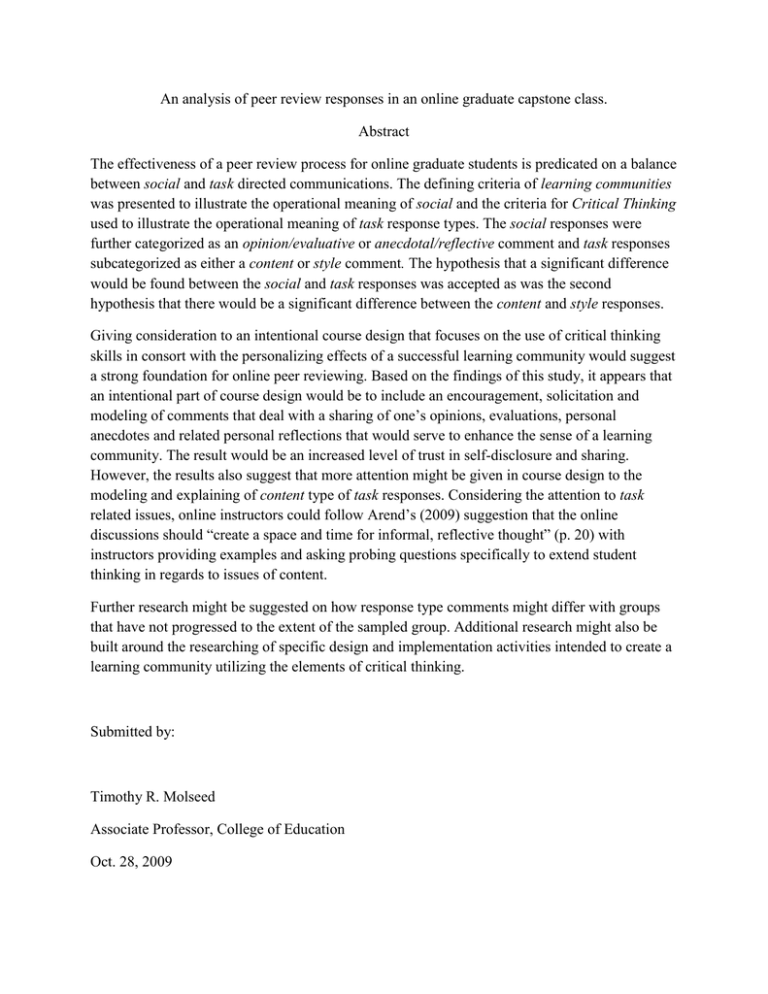
An analysis of peer review responses in an online graduate capstone class. Abstract The effectiveness of a peer review process for online graduate students is predicated on a balance between social and task directed communications. The defining criteria of learning communities was presented to illustrate the operational meaning of social and the criteria for Critical Thinking used to illustrate the operational meaning of task response types. The social responses were further categorized as an opinion/evaluative or anecdotal/reflective comment and task responses subcategorized as either a content or style comment. The hypothesis that a significant difference would be found between the social and task responses was accepted as was the second hypothesis that there would be a significant difference between the content and style responses. Giving consideration to an intentional course design that focuses on the use of critical thinking skills in consort with the personalizing effects of a successful learning community would suggest a strong foundation for online peer reviewing. Based on the findings of this study, it appears that an intentional part of course design would be to include an encouragement, solicitation and modeling of comments that deal with a sharing of one’s opinions, evaluations, personal anecdotes and related personal reflections that would serve to enhance the sense of a learning community. The result would be an increased level of trust in self-disclosure and sharing. However, the results also suggest that more attention might be given in course design to the modeling and explaining of content type of task responses. Considering the attention to task related issues, online instructors could follow Arend’s (2009) suggestion that the online discussions should “create a space and time for informal, reflective thought” (p. 20) with instructors providing examples and asking probing questions specifically to extend student thinking in regards to issues of content. Further research might be suggested on how response type comments might differ with groups that have not progressed to the extent of the sampled group. Additional research might also be built around the researching of specific design and implementation activities intended to create a learning community utilizing the elements of critical thinking. Submitted by: Timothy R. Molseed Associate Professor, College of Education Oct. 28, 2009
